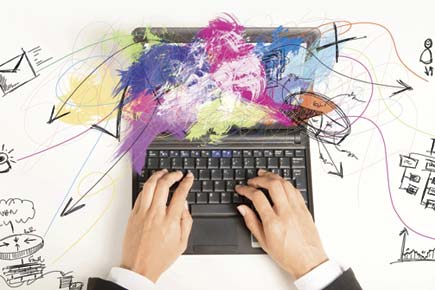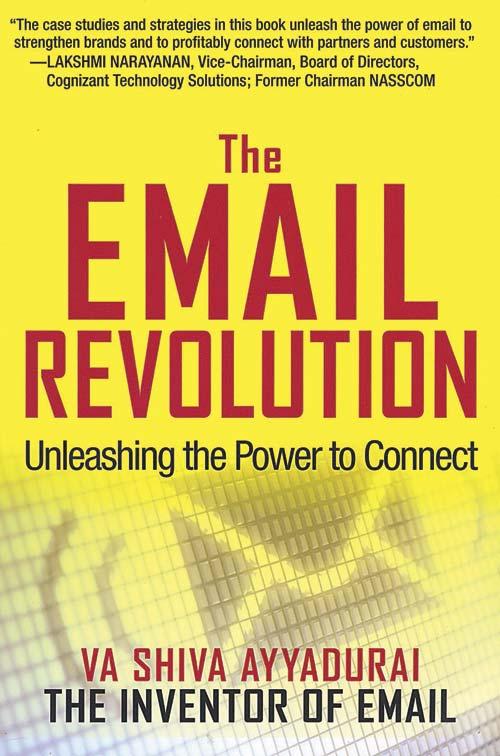How to save time, money and heartache when using electronic mail

It is 20 years since spamming first became a business practice. Two American lawyers hired a rogue programmer to post their “Green Card Lottery – Final One?” message to as many newsgroups as possible. What made them different was that they did not hide the fact that they were spammers.

ADVERTISEMENT
They were proud of it, and thought it was great advertising. They even went on to write the book How to Make a Fortune on the Information Superhighway: Everyone’s Guerrilla Guide to Marketing on the Internet and Other On-Line Services. The duo planned to open a consulting company to help other people post similar advertisements, but it never took off.
Now we have scam filters and junk folders to stash those pesky messages in. But then there are always new ways to annoy as the purveyors of urban legends, for example, have discovered. Sometimes, even you yourself may end up starting or perpetuating a chain of emails which serve no purpose except to waste time. Here are some tips on how to make your email usage efficient and useful, extracted from the book The Email Revolution by VA Shiva Ayyadurai.
The Ten Commandments of Email are provided here to serve as a summary of the core set of principles governing email. These ten commandments will ensure that you use email the right way, and can save you time, money, and a lot of heartaches.
Email Is Not “Private”
You may think that any email you send is only received by the recipient; however, email can be easily forwarded, or the recipient of your email can reply to you while copying or blind copying a host of other people. On a different level, following the attacks on September 11, 2001, and the Homeland Security initiatives derived from them, all our emails are accessible by governments at any time and any place regardless of the level of security and encryption. From a corporate perspective, a company owns any and all email transactions made on the company’s server. Also, those sending emails must be aware of hackers and thieves. Be particularly careful to avoid sending passwords, credit card numbers, and other personally identifiable information via email. If you use free email services, read their privacy policy, for you will find that your email is not so “private”.

The Email Revolution by VA Shiva Ayyadurai
Published by Allworth Press
Price: US $ 16.95
Email Reflects You and Your Organisation
When you write an email, you are mirroring your thoughts and feelings in the electronic medium. It is important to understand the difference between writing an informal and a formal email. Remember email is not text messaging. Sometimes, it is okay to be funny and to joke; however, in business communications, err on the side of formality by checking spelling and grammar and following proper etiquette of writing with appropriate headers and footers on all email communications. For organisations, every email sent to a prospect or customer reflects your organisation’s brand. Set standards, protocols, and templates to ensure that the millions of emails that are sent do not erode your brand, but rather enhance it through each communication. Within each communication, be concise with clear objectives and the results you hope to achieve.
Email Has Permanence
Each email you send is more than likely saved or archived on your computer system or on the recipient’s system; therefore, do not assume that an email message no longer exists, even if you delete what you received or sent. Your thoughts and interactions with others, via email, are archived and saved, potentially for posterity. In financial services organisations, all data must be saved for a minimum of seven years. Think about what you are writing and what legacy you are leaving through such communications. Email communications are subject to legal discovery and can be presented in a court of law.
Email Can Be Confusing
While email is great for communicating quickly and easily, it can be confusing because the sender and receiver of such communications only see words, not gestures and emotions. Therefore, precision is central to email communications. Do not use capitalisation unless it is necessary. Avoid sarcasm, as this can be very dangerous. For example, “What are you talking about?” can be construed in many ways: A joke, an attack, or a sarcastic remark. Use a clear subject line, signature line, header, body, and footer in all email communications. Think before you write. And, think really carefully before you hit Send.
Email Is Not Free
One of the erroneous assumptions is that email is free. Email is not by any means free. There are many direct and indirect costs associated within this medium. It costs money for an organisation to handle an inbound customer email. However, beyond this there are other costs. Spam or junk email costs money to read, process, store, and delete. Emails containing viruses have many side effects including loss in productivity and potential destruction of valuable information. Large attachments require additional space. Chain letters, forwarding of jokes, and participation in flaming debates via email add to these costs. Recognise that every email interaction has a cost, including your time, computer hardware and software costs, and IT personnel time to maintain the systems. Be frugal with email. If you’re not paying for it someone else is or you may be paying indirectly when you use “free” services which may be reselling your personal information or using you to view advertisements.
Email Is Personal
Email, whether formal or informal, is a very personal medium similar to personal conversation. If you send an email to someone and he or she does not respond, you will feel anxious and disappointed. Use auto-acknowledgment and out-of-office replies appropriately to let people know you received their email communication. If you are using auto-responders, avoid email loops by using varying “From” addresses. Use clear signature names at the footers so everyone knows exactly who is writing to them and how to contact the sender. In email marketing, the more you segment, target, and personalise your mailing lists and your content, the more you will be seen as personal and will be rewarded with higher open rates and increased sales. Your headers, language, and salutations will make your email more personal and intimate.
Email Is Not Equal
Not everyone has access to the same technology for viewing email. This means that some people can view different formats of email, while others on old browsers and on many wireless devices can only see some parts of email. Thus, be concise when writing an email. This will become more and more important for wireless interactions because many have to pay by character received or sent. If you are participating in email marketing campaigns, ensure that your outbound message can be read by the different browsers.
Email Has Limits
Do not use email to avoid having a conversation. Do not send an angry, potentially inflammatory email when a heart-to-heart conversation either in person or over the phone is needed. Email is not good for debates, accusations, or personal attacks. Email is really designed for convenience, not for urgency. If you see an ongoing thread of email, back and forth, with no resolution in sight, step back, relax, and know you may have hit the limit with that email interaction.
Email Contains Thoughts
Email contains the thoughts of those who write the email. Every email contains attitude, issues, requests, products of interest, and the type of customer sending the email, either explicitly or implicitly stated. By employing some manual or computer-aided filtering and intelligence, these thought forms, embedded in email, can be extracted and sorted, so you can better respond and connect with the other person and know what they are really thinking.
Email Is Asynchronous
The great element of email is that you read it when you want to read it. Those who check email every five minutes are using email in an undisciplined fashion. Reading and responding to every email immediately sets false expectations for those to whom you send email. It may be valuable to set some guidelines, thus establishing some clear disciplines on using email effectively.
The above Ten Commandments are core principles that will support your creative, personal, and professional success in using email.
 Subscribe today by clicking the link and stay updated with the latest news!" Click here!
Subscribe today by clicking the link and stay updated with the latest news!" Click here!







